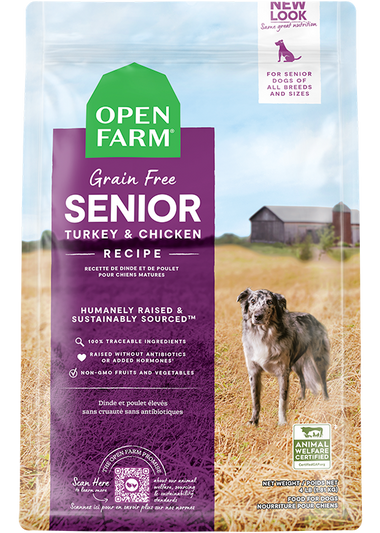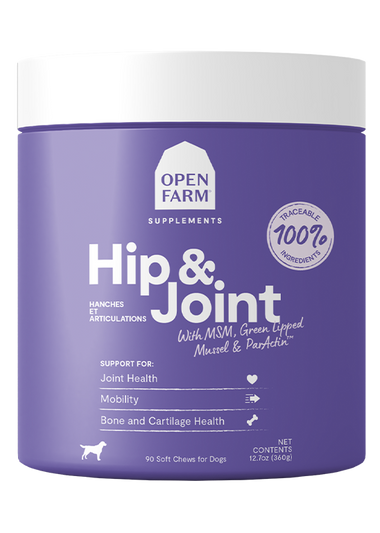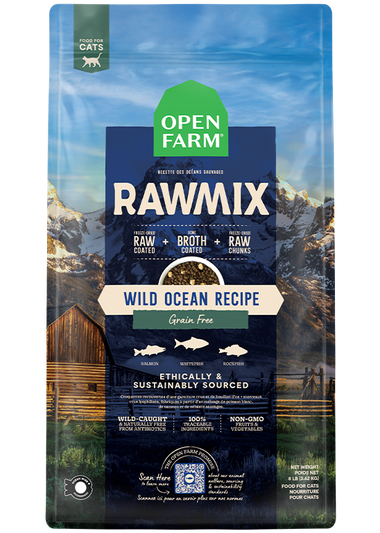November is a special time for animal shelters all over the world. It’s the one month of the year dedicated to raising awareness and celebrating the beauty of older dogs and cats. To understand the importance of Adopt A Senior Pet Month, we first need to be aware of the problems they face.
The plight of senior pets
If you’ve ever visited or volunteered at a shelter, you may notice that there are a large number of white-furred dogs and cats calmly sitting in their enclosures. These animals are unfortunately the last to be adopted.
It’s understandable. It’s easy to gloss over the quiet older animals in favor of rough-and-tumble puppies and kittens. While younger animals enjoy a 60% adoption rate, senior pets are at a measly 25%. This means that the last few years of many a senior pet’s life are spent alone.
So if you’re thinking of adopting, keep an open mind. Take your time to look at each and every enclosure because you never know which animal will spark that connection. If you dismiss senior cats and senior dogs offhand, you might just miss out on your next best friend.
There are definitely things you have to consider if you adopt a senior pet. Concerns about medical care and special needs turn off many potential adopters. But not a lot of people know that there are also distinct advantages in having an older pet. And that’s what Adopt A Senior Pet Month is for.
Advantages of adopting senior pets
Having a senior pet has its perks! You might just find that an older dog or cat might fit your lifestyle even better than a young one. If you’ve ever had a puppy, you’re familiar with their growing pains. Teething is something young animals do to soothe the pain of erupting permanent teeth. With senior pets, you don’t have this problem!
Many senior dogs in shelters have already mastered potty training and essential commands like “sit”, “stay”, and “down.” Senior cats understand what the litter box is for without needing training. They also do not destroy things as readily as their younger counterparts because they’re generally more mellow. Unlike a puppy or a kitten, you won’t have to keep an eye out for senior cats or dogs 24/7.
Since they’re full-grown, senior dogs and cats won’t go through much more changes when it comes to grooming. You know exactly what you’re going to get and what you have to do to maintain their look.
It’s likely that these animals have been in one or several homes. Given this, they settle down quickly into a new environment. Younger animals tend to have a longer adjustment period because it’s the first big change they’ve gone through. Confirm with the senior pet’s record to see what kind of living environment they’ve been exposed to. If you already have existing pets at home, it would be great to find a new dog or cat used to that kind of living arrangement.
Another big plus of getting an older pet is their steady and relaxed disposition. They’ve grown into their personality, so what you see is pretty much what you get. If you like to kick back and enjoy the quiet life with an easy-going companion by your side, a senior dog or cat is your best bet.
But whoever said “you can’t teach an old dog new tricks” obviously never had a senior pet. These old-timers have some fight in them yet! Their bodies might be a little worn, but they can definitely learn a new lesson or two.
Considerations in having a senior pet
Having a senior pet is definitely rewarding, but to maximize your relationship, you need to know what care they need. Finding out how old your senior pet is in human years will give you a better idea of what to expect.
Many people think it’s a direct conversion of 1 dog year = 7 human years, but that is not entirely accurate because smaller dogs have a different lifespan than bigger dogs. Ditto for cats. Instead, use this veterinarian-approved chart that takes into consideration pet size in relation to age.
In general, the older the pet, the higher the likelihood they’ll have health problems. Even the most robust kitten will experience normal wear-and-tear by the time she’s the equivalent of a 70-year old human.
Visit the vet at least twice a year
Your furry buddy may not go now, but it’s part of responsible pet ownership to have them checked at the vet regularly. And for senior pets, that means at least twice a year for a check-up.
If you can find a nearby veterinarian with experience in handling geriatric patients, all the better. The examinations of older animals are more thorough, even if they’re apparently healthy. From checking the eyes to observing the gait, manipulating the joints to checking the bloodwork, your veterinarian will be looking for signs of age-related illnesses to prevent it from worsening quickly.
Adjust your senior pet’s diet
As animals grow, their dietary needs change too. Their teeth may not be as strong and their digestion may not be as robust, so they do better with ingredients that are easy on the stomach. Their metabolism gets slower as they age, so you’ll need to watch that calorie count. They don’t need as much given their more sedentary nature and the fact that they are no longer growing. They will need nutrients to support the aging process, but not too much that they start gaining weight. The extra pounds won’t be kind on their joints and back.
Open Farm’s Senior Dog Food is a great choice for your geriatric dog. The nutrients are both age-appropriate and packed with flavor, allowing you to spoil your dog as they justly deserve during their twilight years while still keeping them healthy.
Keep senior cats and dogs engaged and comfortable
As animals age, they will experience a decline in strength, endurance and flexibility in both mind and body. The approaches for the two are quite different.
When dealing with an aging body, your aim as a fur parent is to keep them comfortable. Stairs might be a problem, so move their bed, toys, and eating area to the ground floor to avoid any accidents. While older dogs will enjoy the occasional walk outdoors, keep in mind that there is such a thing as too much exercise. Keep it short and take note of their breathing and their movement to get clues on when they’ve had enough. And don’t forget to give them lots of time to sleep and cuddle at home.
When dealing with an aging mind, the goal is to challenge them. Whether it’s mental stimulation toys or new tricks, it’s important to keep your senior cat or dog sharp. This is also a good way to assess any mental fogginess they might be experiencing.
If you have trouble getting your sleepy old dog to sit at attention, try using Open Farm’s delicious and nutritious dog treats. It’s easy to motivate an old dog to learn new tricks with these snacks.
Keep records on their progress
Your senior dog or senior cat will surely be exhibiting signs of ageing, and the best way to prepare for it is to catch it early. Degeneration happens gradually and then all at once, so you need to keep an eye out.
You can do this by keeping a record of their health and behavior. You can choose to write it down in a notebook, use an app, or take videos and pictures and store them online. However you choose to keep tabs on them, make sure to take note of changes in their appetite, thirstiness, potty habits, sleep routine, energy levels throughout the day, mental sharpness, and changes in their body (especially growing lumps and bumps!).
Taking care of a senior dog
Senior dogs are prone to gaining weight and creaky joints. Hit two birds with one stone by choosing dog food made especially for growing canines, such as Open Farm’s Senior Dry Dog Food. It gives your dog just the right amount of nutrients that she needs to stay healthy and happy at her age. With an easy-to-understand feeding guide, you don’t have to worry about giving too much or too little. It also has glucosamine and chondroitin to help give her a spring in her step.
Senior dog care also involves adding gestures to commands and tricks. As your dog ages, she may experience difficulty hearing. In preparation for that probability, you should start to incorporate hand signals along with your verbal cues. That way, if it does get that bad, she can still understand what you’re trying to say. And don’t forget to reward her with a couple of healthy treats!
Taking care of a senior cat
If you’re used to kittens that claw their way up curtains and jump from shelf to table to chair, then you’ll be relieved to know that that happens a lot less often if you have a senior cat. Cats already spend most of their day sleeping, and that just naps just seem to get longer as they grow older.
Creature comforts are the best way to keep your senior cat happy. A warm, cozy bed far away from cold drafts will leave geriatric cats purring in their sleep. Senior cat care also means making it easier for them to get to their favorite hangout spots. Adding a carpeted ramp or steps to a windowsill or a couch minimizes jumping, slipping, and sliding.
Make sure to place their food and water bowls in accessible areas that don’t require much jumping. The same goes for litter boxes--pick those that allow them to walk in rather than climb in. Mobility may be a problem due to arthritic pain.
There is always a chance for mental fogginess to develop in senior cats. Vision and hearing loss and not uncommon either. Setting up an additional food, water, and litter box station in other parts of the house he frequents is a good way to keep him hydrated and prevent potty accidents from occurring.
When it comes to food, it’s best to maintain a steady weight. Tipping the scales in either direction can cause adverse health problems. Choosing cat food formulated for senior cat care will ensure that your pet gets the right caloric intake and nutrients needed to maintain his weight. As always, make sure to record appetite, thirst, weight and other behaviors so you can easily spot changes.
Adopt A Senior Cat or Dog This Month
In shelters all over the world, there are senior pets ready to open their heart to a home that opens their doors to them. Just because they’re past the prime of their life does not mean these animals can no longer bring happiness, laughter, and comfort to people. With their laid-back attitude, there’s no one better to kick back and relax with.
If you are bringing an older pet into your life, always discuss with your veterinarian what you need to do to take care of them properly. With their guidance and your love, a pet’s twilight years could be the best ones yet.
Open Farm has the food you need to keep your senior pet happy and healthy. Stock up on our delicious and nutritious cat and dog food today, and make the last years of their lives some of the greatest!















